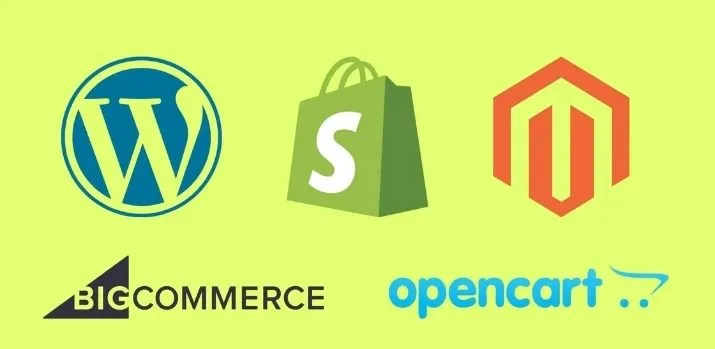5 Most Popular CMS for Your Online Store
Before starting an online store, it is the most considerable thing to choose the best CMS that will help you to set up and manage your online store easily. Choosing a CMS is less costly than hiring a high-paid developer. So, in this guide, we developed a list of the 5 most popular CMS for your online store.
Shopify
Shopify is one of the most popular and easy-to-use SaaS eCommerce platforms. Shopify is well-known in the small business community for its affordable pricing and 24×7 support. The site builder of Shopify is very simple to create product pages, and Shopify also has tons of pre-built templates that will save a lot of time to build pages from scratch.
Pro: Shopify has its servers. So you don’t need to buy separate web hosting for your store.
Cons: There are three subscription plans at Shopify. And the transaction fees are different for each segment. (Basic 2.0%, Shopify 1.0%, Advanced 0.5%).
WordPress
WordPress is also a most popular open-source CMS and it is commonly used for blogging. WordPress is not an eCommerce platform itself, you will need to install the WooCommerce plugin to convert it into an eCommerce store. It is an open-source commerce solution built for WordPress. It also has an immense selection of extensions and themes.
Pro: WordPress is a user-friendly Open-source CMS. And it also allows full customization.
Cons: If you need the advanced features you need to pay for premium plugins. Or need to hire a developer.
BigCommerce
BigCommerce is a flexible API and advanced SEO integrated CMS. With its powerful website editor, you can use and edit the source code of the pre-built templates. And you can also integrate other eCommerce solutions too. BigCommerce offers its CMS for WordPress also. You can activate it by installing their WordPress plugin.
Pro: You don’t need to focus on the technical side. So that you can focus on selling.
Cons: BigCommerce offers plenty of themes but If you have an advanced theme then you have to make a purchase.
Magento
Magento is now Adobe Commerce, It is a flexible AI-Powered and the most well-known eCommerce Platform. Which can use for B2B, B2C, and hybrid commerce. Magento seamlessly integrates from CMS to ERP to CRM that will save your recourses. Magento is also used by many big companies like Nespresso and Samsung. Magento offers cloud-based functionality with its single unified platform.
Pro: It has seamless payment gateway integration, apps, and add-ons.
Cons: If you need advanced features then the Extension can be costly!
Also Read About – 5 Best Places to sell your product online
OpenCart
OpenCart is a free open-source eCommerce platform that allows high customization. OpenCart offers a single interface platform that supports multi-store functionality. It has 1,300 extensions and themes that give you a variety.
Pro: OpenCart is highly customizable and the CMS is free itself.
Cons: You have to host develop, and maintain the website from your end.
Conclusion
Above are the top 5 most popular eCommerce Solutions that are commonly used around the world. You can consider any of the CMS that fits your requirement and the nature of your business. Most CMS have the drag and drop functionality, you can easily set up your online store.
Although if you need a fully customized eCommerce Store, CONTACT US.



